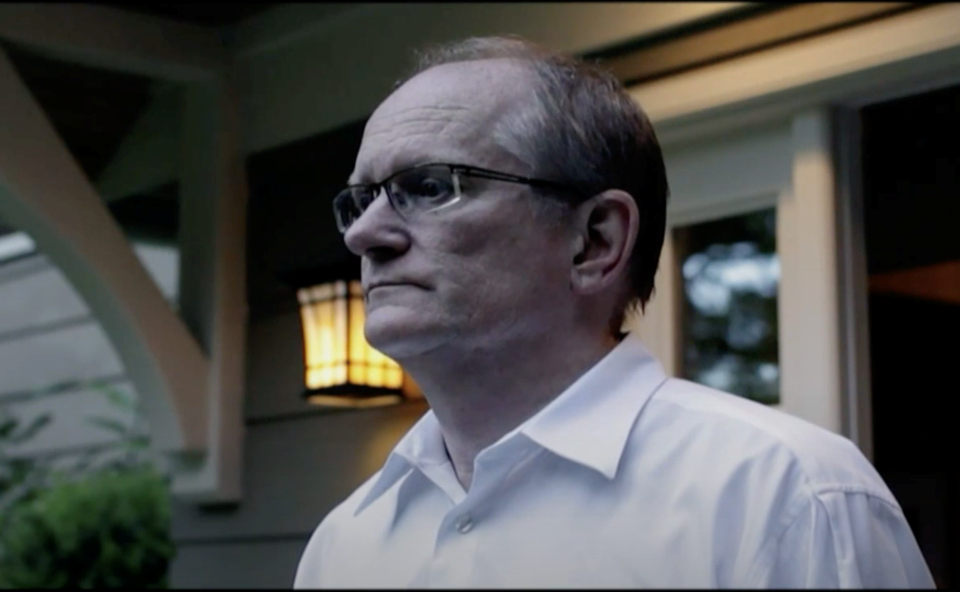Former Vancouver lawyer turned offshore company facilitator Fred Sharp is fighting the U.S. Securities and Exchange Commission’s efforts to freeze his assets, but finds himself “in a pickle,” as put by B.C. Supreme Court Justice Neena Sharma.
Sharp’s criminal defence lawyer Joven Narwal contested in court March 15 that Sharp was never properly served by the commission (SEC), in his argument to have the SEC's injunction application against his client dismissed.
Sharma asked what Sharp’s evidence was, as she said she had not received an affidavit from Sharp for the summary trial, which depends on written submissions for a judge to assess.
Sharp, said Narwal, “can’t provide an affidavit because he’s under indictment in the U.S.”
“Right, so he’s in a pickle,” noted Sharma, who nevertheless proceeded to hear from both sides as to what exactly transpired in attempts to serve Sharp after the commission’s August 2021 civil claim of securities fraud against him.
Sharma questioned why Sharp “has not bothered to come in front of me to say” he hasn’t been served.
Narwal said he can’t.
“He can’t? He’s chosen not to. I don’t even know why he can’t; I can surmise…” the judge stated.
Representing the commission, lawyer Malcolm Ruby told Sharma that the SEC attempted to serve Sharp by courier and by email. Ruby said Sharp’s wife Teresa Sharp responded to the email, stating the email address did not belong to Sharp.
“Alleged wife,” Narwal interjected.
As to the nature of his relationship with Teresa Sharp, Narwal asserted “there’s no evidence they are residing together at the time, nor is there any evidence they were communicating at the time.”
But Ruby said, “there is more than adequate evidence he was notified,” noting a process server found someone to be occupying the Sharp home on Keith Road in West Vancouver; however, no one responded.
Ruby said Sharp is an officer or director of various corporate entities listing Keith Road as his residence, where the courier issued receipts of delivery.
“There is an extensive body of evidence that that was where Mr. Sharp lived,” said Ruby.
The commission submitted in its injunction application (to freeze assets) it took steps to serve Sharp formally through the Hague Convention but he was still not served in person with the complaint, summons and temporary orders against him.
“Sharp was ‘not served’ because after ‘multiple attempts, lights on in residence, car in driveway, window open, no one came to the door,’” noted a deputy sheriff’s certificate filed in a Boston court in November 2021.
However, Narwal said there was another prospective address for service for Sharp — in Summerland.
Nawal argued the attempts at service were invalid under U.S. law while the commission has stated they were accepted by a federal judge in the District of Massachusetts, who ultimately found Sharp liable for securities fraud, as alleged by the commission, while imposing a US$52.9-million judgment against him, in May 2022.
The SEC had alleged “Sharp masterminded a complex scheme” from 2011 to 2019 in which he and his associates — including several B.C. residents — enabled control persons of penny stock companies, whose stock was publicly traded in the U.S. securities markets, to conceal their control and ownership of huge amounts of shares and then surreptitiously sell those shares into the U.S. markets, in violation of federal securities laws.
The commission claimed multiple groups took part in the scheme that had involved over $1 billion in transactions with hundreds of penny stock companies.
The original injunction application against Sharp also included six other co-defendants, on Aug. 11, 2022.
On March 21, 2023, B.C. Supreme Court Justice Amy D. Francis granted the commission the Mareva injunction to prevent five of those B.C. defendants from dispersing their assets.
The injunction was granted against Zhiying Yvonne Gasarch, Courtney Kelln, Mike K. Veldhuis, Paul Sexton and Jackson T. Friesen.
Those five were subsequently found to have committed securities fraud in civil judgments, with the commission demanding US$68.1 million total from them.
Co-defendants Graham R. Taylor and Sharp were not part of that injunction ruling due to scheduling conflicts.
In 2021, the Department of Justice issued an arrest warrant for Sharp and froze assets, including numerous bank and brokerage accounts in the U.S.
In January, the U.S. Attorney’s Office issued a new criminal indictment against Sharp. Kelln, 43, of Surrey; Sexton, 55, of Anmore; and Veldhuis, 43, of Vancouver are also criminally charged.
Sharp is litigating on multiple fronts.
He is also engaged in a complex and longstanding constitutional challenge against the Canada Revenue Agency, which is investigating his offshore tax arrangements. The CRA made a criminal referral in 2013, alleging Sharp’s business, Corporate House Group of Companies (Corporate House), was involved in a complex tax evasion scheme. In 2016, Corporate House arrangements were revealed in the Panama Papers leak. None of those allegations have been tested in court.
Last November, Sharp lost a challenge in Supreme Court of Canada over jurisdictional rights of provincial securities regulators.
In February 2023, the B.C. Securities Commission (BCSC) permanently banned Sharp from the province’s public investment market.
“Sharp's misconduct was extremely egregious, and we find there to be no mitigating factors,” stated a BCSC panel ruling on a reciprocal order application.

